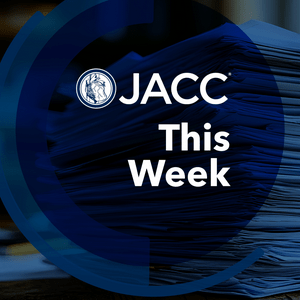November 25, 2025: Clonal Hematopoiesis, Alcohol and Blood Pressure, Long-Term Risk, and Emerging Biomarkers | JACC This Week
JACC's November 25, 2025 issue kicks off Thanksgiving week with JACC Editor-in-Chief Harlan M. Krumholz, MD, SM, reflecting on his editor's page and the day he became a doctor (0:12). For original research articles, he discusses a study on colchicine & clonal hematopoiesis, an exploratory study of the LoDoCo2 trial (1:10), and a paired editorial comment with more perspectives and a reminder of the upcoming COLCOT trial (4:33). Next, a study on Lp(a) and IL-6 (4:54) and an editorial (6:12), 30-year CVD risk percentiles based on the PREVENT equations (6:30), and an accompanying editorial from JACC Deputy Editor Erica Spatz, MD, on next-generation strategies to encourage healthier behaviors (7:35). Other studies and editorials include a fascinating look at alcohol and blood pressure (8:04) and reinforcing the WHO public health guidance (10:05); remnant cholesterol in young adults (10:38) and implications for cholesterol guidelines (12:36). We also include four brief reports on RSV vaccine (13:11), long Covid (13:43), Lp(a) levels (14:06), the predictive power of polygenic risk scores (14:58), a viewpoint on US veterans (15:36), and our regular Amara Yad image (15:53), which we're delighted to be able to continue to promote with JACC: Clinical Electrophysiology Editor-in-Chief Kalyanam Shivkumar, MD.


